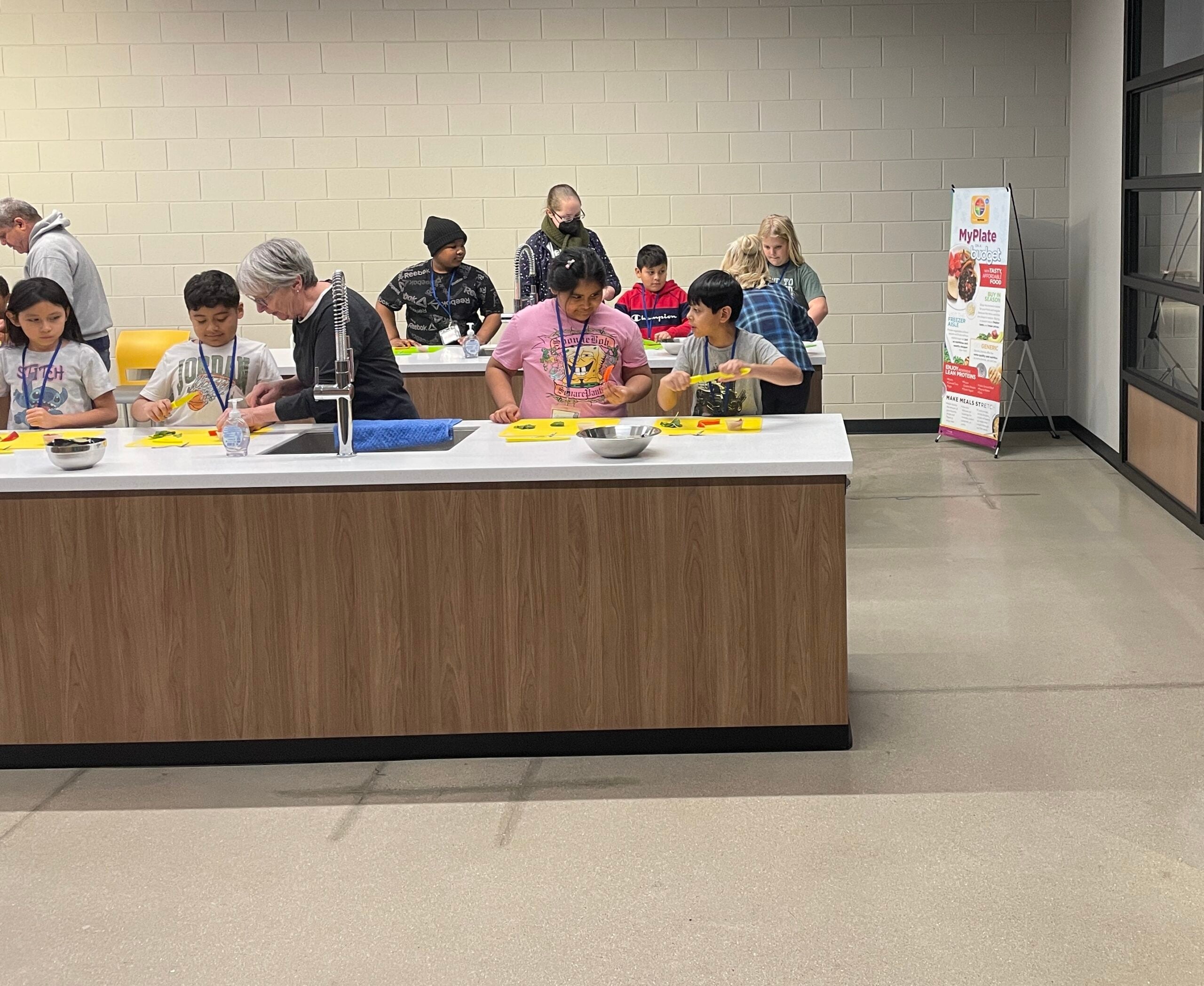Some of the most common concerns doctors hear from patients relate to their gut health — gas, constipation, bloating, diarrhea — but it’s not always the easiest or most comfortable conversation to start.
For years, people with irritable bowel syndrome symptoms were told the issues were related to stress, it was in their heads or they needed to exercise more, said Melissa Phillips, a clinical nutritionist at the University of Wisconsin-Madison Health System’s Digestive Health Center.
But now, research shows those issues can often be connected to diet, she said. Many of her patients see improvements in their symptoms by adjusting what they eat.
Stay informed on the latest news
Sign up for WPR’s email newsletter.
“We always try diet,” she said. “Certainly there’s always something that we can do to help improve our digestive diet.“
Philips said the best way to support gut health through food is with a diverse, plant-based diet and whole grains.
“The more varied a diet you can get, the better,” she said. “Good sleep also really helps with gut microbiome, exercise and activity … and then stress reduction. Those are your four pillars of really good digestion.”
As researchers have learned more about what can cause digestive issues and it’s become less of a taboo topic, people have also become more open to talking about it, Phillips said.
“People want to feel better, and they don’t mind telling us what’s going on,” she said.
Philips recently answered some common questions people have about digestive issues.
On whether digestive issues could be tied to modern, convenience diets:
Absolutely.
With the increase in very overprocessed, packaged foods that may have little or no nutritional value to them, what we’re noticing is that the gut microbiome starts to dwindle a little bit because those processed packaged items contain a lot of sugar, they may contain a lot of fat.
And so our diversity starts to decrease in our microbiome. And when diversity decreases, we start to notice an increase in symptoms which can lead to things like diabetes, cardiovascular disease. They are finding links between the microbiome and those chronic health conditions.
On how to differentiate between normal, common digestive issues and those that need medical attention:
It’s very normal on occasion to have some digestive difficulty, to have a little bit of gas, maybe go a couple of days without a bowel movement. But when things are happening more consistently, three to four times a week for example, somebody is complaining of a lot of gas, pain, cramping or they’re having multiple loose stools a day, many days a week, that’s when we would really recommend that they seek the care of a trained physician, primary care provider to start with, and a gastroenterologist provider.
On what a day of eating for a healthy digestive system could look like:
A good breakfast might include some sort of whole grain, like oats, but also include some sort of protein with that. Maybe that’s a couple of eggs, maybe a spoonful of peanut butter. But I always add something else fibrous to that, like flax seed or chia seed and then some sort of fruit.
(For) lunch, a lot of people are into doing meal prep. So it could include a small 3-ounce piece of chicken or fish with a nice healthy side of vegetables, maybe some fruit and a little bit of a whole grain like quinoa or rice alongside it.
And for dinner, maybe something very similar.
For snacks, I’m always going to advocate for nuts, fruits, vegetables, avocado, anything that kind of fits in that Mediterranean style diet.
On whether eating at home more because of COVID-19 is having an impact on digestive health:
Absolutely.
One thing I’ve noticed at least consistently when talking to patients over the phone is that they are feeling a lot better, despite even the recommendations we’ve made, because they aren’t eating out as much, they’re not grabbing a cupcake at the office break room, for example.
They’re eating the fruits and vegetables they’re buying and not letting them go bad. They’re baking, they’re making sourdough bread, which is one of the more easily digested types of bread out there.
So we are seeing an improvement with this pandemic and people kind of bringing it back to the kitchen, which is great.
Wisconsin Public Radio, © Copyright 2025, Board of Regents of the University of Wisconsin System and Wisconsin Educational Communications Board.




